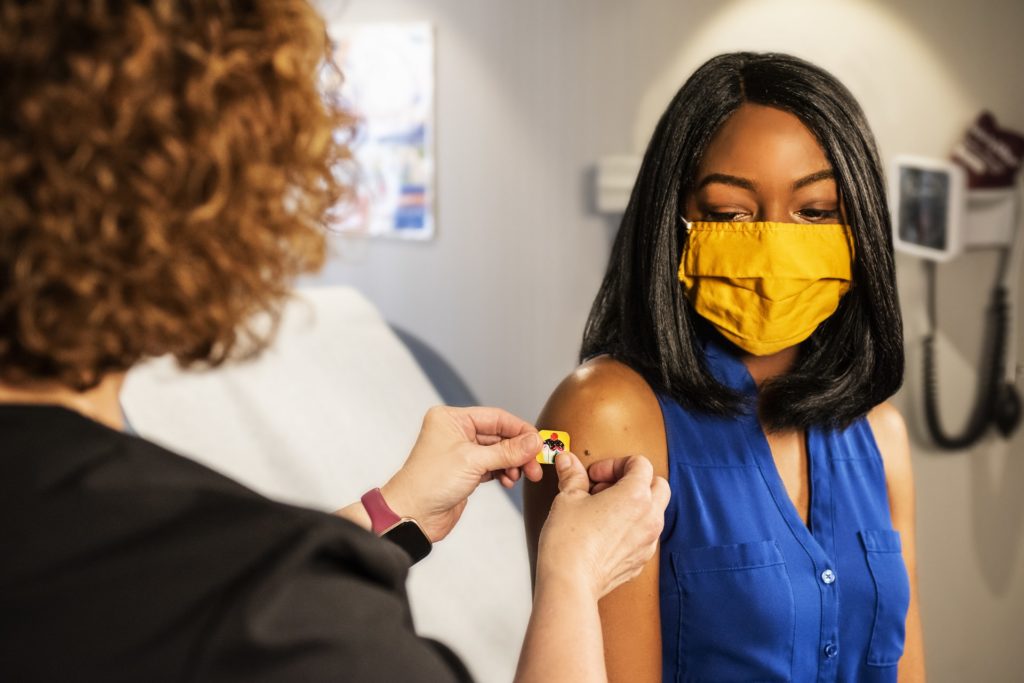Following months of speculation and uncertainty, a large-scale American study now found that Covid-19 vaccination indeed has an effect on menstruation, as 42% of women reported heavier bleeding after receiving their shots.
One of the researchers was anthropological biologist Kathryn Clancy, who started experiencing enormous menstrual problems, such as very heavy bleeding, ten days after receiving her first Covid-19 dose in early 2021, she told the scientific journal Science.
But it was only when her graduate student Katharine Lee talked suffered from unusual cramps after her Covid-19 vaccination that she made the connection, and decided to look into it.
Some earlier, smaller studies on the effect of Covid-19 vaccines on the menstrual cycle – a phenomenon dubbed "period weirdness" by many for lack of an official diagnosis – had already been carried out, and all seemed to indicate a connection of some kind, which is now being confirmed by researchers at the Universities of Illinois and Saint Louis.
For three months, they collected 39,000 responses from women aged 18 to 80 who (as far as they knew) had not yet been infected with Covid-19, but had been fully vaccinated.
Initial analysis of the results shows that 42% of respondents experienced heavier bleeding immediately after vaccination, while 14% experienced lighter bleeding and 44% did not notice any difference. After one or two cycles, however, menstruation cycles usually went back to normal.
'Reassuring results'
"It is a good thing that such a large-scale study has finally been done on this topic," Professor Johan Verhaeghe, a gynaecologist at the Leuven University Hospital (UZ Leuven) told De Morgen. "In my practice, I got a lot of worried women complaining about more or less bleeding, heavier or lighter periods."
He stressed the importance of having a scientific basis that doctors and specialists can use when talking to patients. "Specifically because the study is reassuring: menstruation usually normalises completely after one or two cycles."
Additionally, the study showed that 66% of newly menopausal women and 39% of transgender men in the study – two groups of people who usually do not menstruate (anymore) – started bleeding again after receiving one or two doses of a Covid-19 vaccine.
"That is very important because it is often the case that bleeding after menopause can indicate certain types of cancer," Verhaeghe said. "If that happens, they are rightfully very worried and immediately go to the doctor. Now, it is good that we can reassure them that it could be a normal reaction to the vaccine."
Exact cause remains unclear
He agreed that all of this should have been taken into account a lot earlier in the vaccine's clinical trials, but added that those tests are often done only with long-term effects in mind. "That is a problem with all vaccines. If this study had been done from the start, many women would have been spared a lot of unnecessary headaches."
What exactly causes the disrupted menstruation cycles remains unclear for now as the research has only just started, but the first data point to a heavier inflammation due to the activation of the immune system after the vaccination, which leads to more intense bleeding.
"This builds on the existing scientific knowledge about menstruation. Menstruation consists of two parts," said Verhaeghe. "There is the inflammatory phase, which can be painful and where anti-inflammatory drugs can provide relief. Then there is a recovery phase for the next cycle."
In Belgium, there is no research into the relationship between the Covid-19 vaccines and menstruation. According to the latest overview of the side effects of Covid-19 vaccines by the Federal Agency for Medicines and Health Products (FAMHP), however, a total of 2,061 reports of menstrual problems were received at the end of May.
Related News
- Could menstrual leave become the norm in Europe?
- Free period products for female prisoners in Belgium
Heavy bleeding (609 reports), menstrual disorders (540) and irregular menstruation (391) top the list. There is no significant difference between the different vaccines. Additionally, compared to the total number of vaccinated people, the number of reports remains very limited. The FAMHP also reported that the vast majority of these side effects were "not serious, and resolved spontaneously."
Verhaeghe is also relieved that with a new vaccination campaign coming up after the summer, there is now scientific evidence. "It can only help us to point out to women that they should not worry too much if their cycle is disturbed after the vaccine."
This is also the main message that Katharine Lee, the anthropological biologist who authored the study, wants to convey, she told The New York Times. "I think it is important for people to know that this can happen so they do not get scared, are not shocked and are prepared for it."

